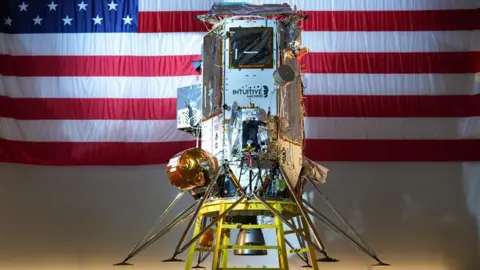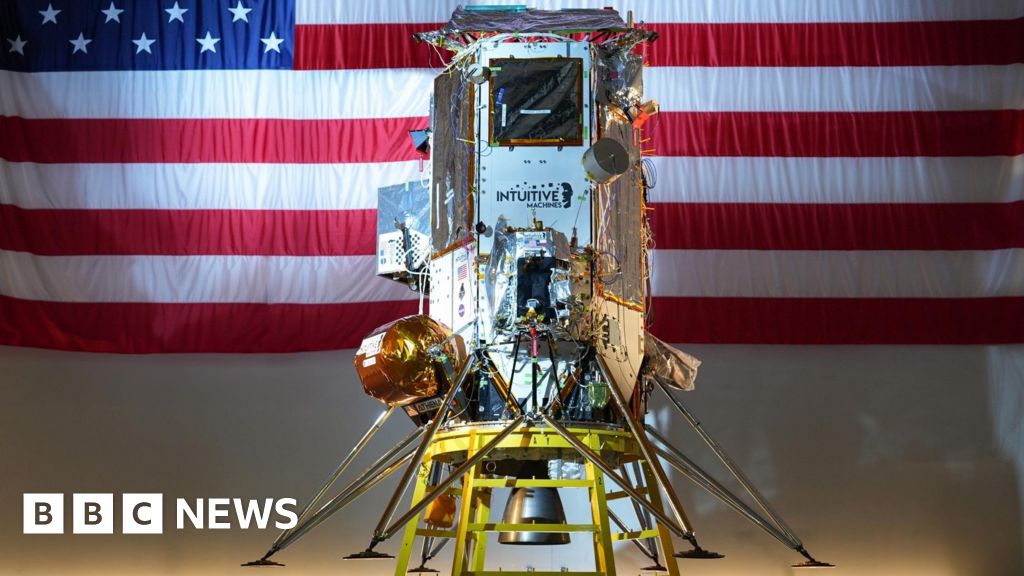Technology reporter

In a concept reminiscent of science fiction, Stephen Eisele believes that his company, Lonestar Data Holdings, could one day establish a data centre on the Moon.
“Our vision is that a data centre in space offers unmatched security,” states Eisele, the president of Lonestar Data Holdings. Recently, the firm announced the successful test of a compact data centre, roughly the size of a hardback book, which was sent to the Moon aboard the Athena Lunar Lander, launched by Intuitive Machines with a SpaceX rocket.
Data centres are extensive facilities where numerous computers are housed to store and process information for online platforms, businesses, and governmental agencies. Lonestar suggests that relocating these centres to the Moon would provide clients with secure and reliable data processing while utilizing renewable solar energy for power.
While the idea of space-based data centres may seem unconventional, the concept is gaining traction. The escalating demand for data, particularly due to the growth of artificial intelligence, is a significant factor, with the need for data centres expected to soar between 19% and 22% by 2030, according to McKinsey & Company.
As local opposition to new data centre developments on Earth increases, and with the challenges of finding suitable locations, placing these centres in space may reduce environmental impact, utilizing almost limitless solar energy and avoiding complaints from nearby residents. Additionally, they could cater to service needs for space missions, with faster data transfers between space-based locations compared to terrestrial options.
Although optimism surrounds the idea, Dr. Domenico Vicinanza of Anglia Ruskin University points out significant challenges ahead. Launching materials into orbit remains costly, with each kilogram priced at thousands of dollars. Space data centres would need not only the data equipment but also the infrastructure for protection, power, and cooling, which adds complexity and weight. Moreover, the challenge of cooling systems in the absence of gravity complicates operational capabilities, and issues like space weather and debris pose risks to hardware.
Nonetheless, firms like Lonestar continue to push forward. They aim to establish a small data centre in lunar orbit by 2027, while others, such as Starcloud, plan to launch their satellite-based data centre soon. Lonestar’s Eisele asserts that these space centres will deliver enhanced security for sensitive data, as they don’t rely on terrestrial networks for communication. As they prepare to meet regulatory requirements for data sovereignty, they already have customers, including the state of Florida and the Isle of Man government.



